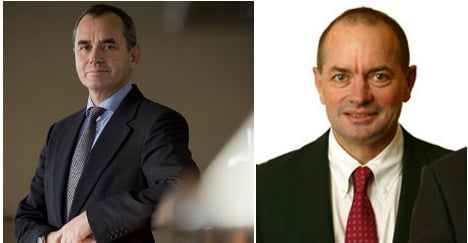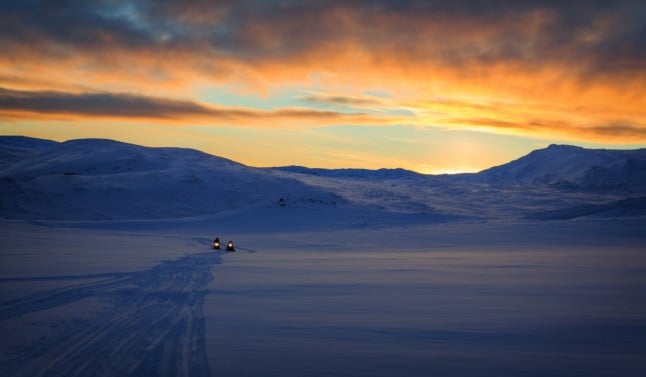In an opinion article in the Dagens Nyheter daily on Sunday, the brothers defended their father Adolf’s business record and accused the Aftonbladet daily of having “set aside the principles for serious investigative journalism”.
“The allegations which, among others, Aftonbladet and some internationally active non-profit organizations have directed against Adolf Lundin and other members of the family and the men and women working in companies within the Lundin group are simply unfounded, unfair and in some cases, even absurd.”
The allegations refer to alleged human rights abuses in connection with oil exploration in southern Sudan between 1997 and 2003.
Magnus Elving of the International Prosecution Chamber in Stockholm (Internationella åklagarkammaren i Stockholm) is investigating claims made in a report entitled “Unpaid Debt” framed by an umbrella group named the European Coalition on Oil in Sudan (ECOS) and present in 2010.
The report alleges that Sudanese troops, in collaboration with militias, attacked and drove away the civilian population in areas where companies could drill for oil.
Lukas and Ian Lundin on Saturday welcomed this investigation.
“Thus far, we ourselves, or other employees of the Lundin Group, have not been called to any questioning or interviews – but are looking forward to cooperating fully if we are asked to do so,” the pair wrote.
The brothers leapt to the defence of their father, who built the flagship family firm from modest beginnings in the 1980s into the major energy concern that it is today.
“To cast us who work in the Lundin Group as opportunistic, dictator-hugging businessmen is to display a complete lack of understanding of Adolf Lundin and the values he stood for – and for the values that we continue to stand for today.”
The pair argued that contrary to perception in some quarters of the Swedish press, the Lundin Group has contributed to economic growth in the countries in which they have been active.
“In our opinion there is no doubt that the Lundin Group’s presence has been of benefit to the communities and the peoples in all regions where we have been and are still active,” they claimed.
The brothers concluded by arguing that they were “long-term and responsible actors with the commodities sector” and called for a broader debate on how oil and mining firms can further contribute to “economic growth, environmental responsibility and human rights in the regions in which we are active”.
The investigation into alleged human rights abuses in Sudan covers the period between 1997 and 2003. Lundin Oil was founded in 1997 and in 1999 the firm made a major discovery of oil in the Thar Jath structure in block 5A in southern Sudan.
Lundin Oil was subsequently sold to Talisman Energy in 2001 and the Sudan holdings, together with Iranian and Russian assets, were transferred to a new company Lundin Petroleum.
Lundin Petroleum sold its licence in Thar Jath to Petronas Carigali for $142.5 million in 2003.
On July 20th 2002 the government of Sudan (GOS) and the Sudan People’s Liberation Movement (SPLM) signed a preliminary peace agreement in a first step to ending almost 20 years of civil war.
A comprehensive peace agreement was signed in January 2005 and South Sudan seceded to form an independent state on July 9th 2011.



 Please whitelist us to continue reading.
Please whitelist us to continue reading.
Member comments